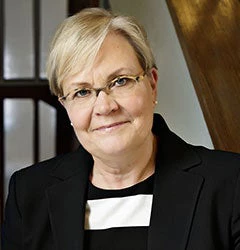Until very recently, social safety nets—programs that transfer cash or in-kind resources to poor and vulnerable people in a variety of ways—were seen as the preserve of rich or middle-income countries. The program that often came to mind when I thought of social safety nets in developing countries was Brazil’s Bolsa Familia, which is said to be the largest in the world and one of the most successful.
But today, many low-income countries do have some form of social safety net, and those in Sub-Saharan Africa are no exception. Over the past decade, 120 cash transfer programs have been rolled out in Africa. And there is growing evidence that these programs can have an impact on poverty and are a strong investment in people. Safety nets help poor people meet their basic needs, including food, healthcare and education; provide temporary assistance during economic or climate-related crisis; and build household or community assets.
At the World Bank-IMF Spring Meetings this year, a livestreamed event, “The Rise of Social Safety Nets in Africa,” will present the latest knowledge and evidence on safety nets in the region. Highlights include an overview of safety nets in the African context, the link between Rwanda’s Vision 2020 Umurenge program and the country’s rapid poverty reduction, and the role of technology in improving the efficiency and transparency of these programs.
The panel includes:
- Ms. Obiageli Ezekwesili, World Bank Vice-President for Africa
- Ms. Tamar Manuelyan Atinc, World Bank Vice-President, Human Development
- Hon. John Rwangombwa, Minister of Finance and Economic Planning, Rwanda
- Mr. John Staley, Director, Mobile Banking and Payments Innovation, Equity Bank
“The Rise of Social Safety Nets in Africa” will be livestreamed on Friday, April 20 at 1 p.m. UTC/GMT (9:00 a.m. Washington DC), at http://www.livestream.com/WorldBankAfrica
A short film capturing the voices of people benefiting from social safety nets in Africa will also be played during the event. The film opens with the recent experiences of a woman who has recently started receiving cash transfers in Niger, a country where food insecurity has long been a threat. It also features a young man in Kenya, who was able to open a business and look after his orphaned siblings thanks to a cash transfer. Finally, it takes us to Ethiopia where a student describes how his family benefited from a productive safety net program that allowed them to invest in their farm. Eventually, the family left the program as they no longer needed it.
I hope that this event will be truly useful for all those who are working to find the best ways to cushion poor people from crisis, and to invest in people consistently and sustainably. Please join us. We want to hear from you. RSVP


Join the Conversation